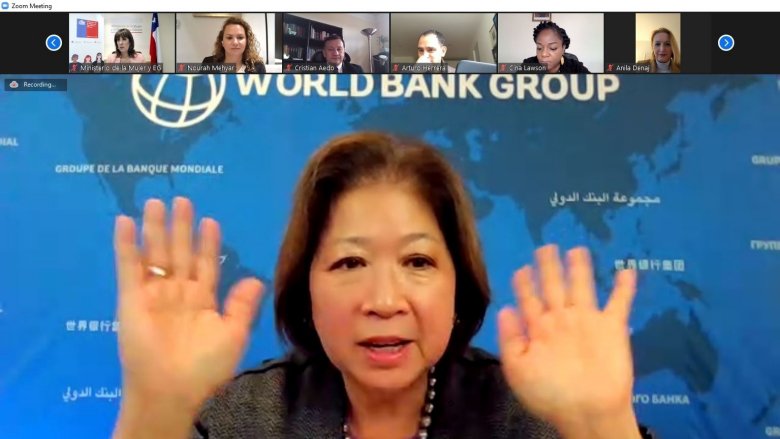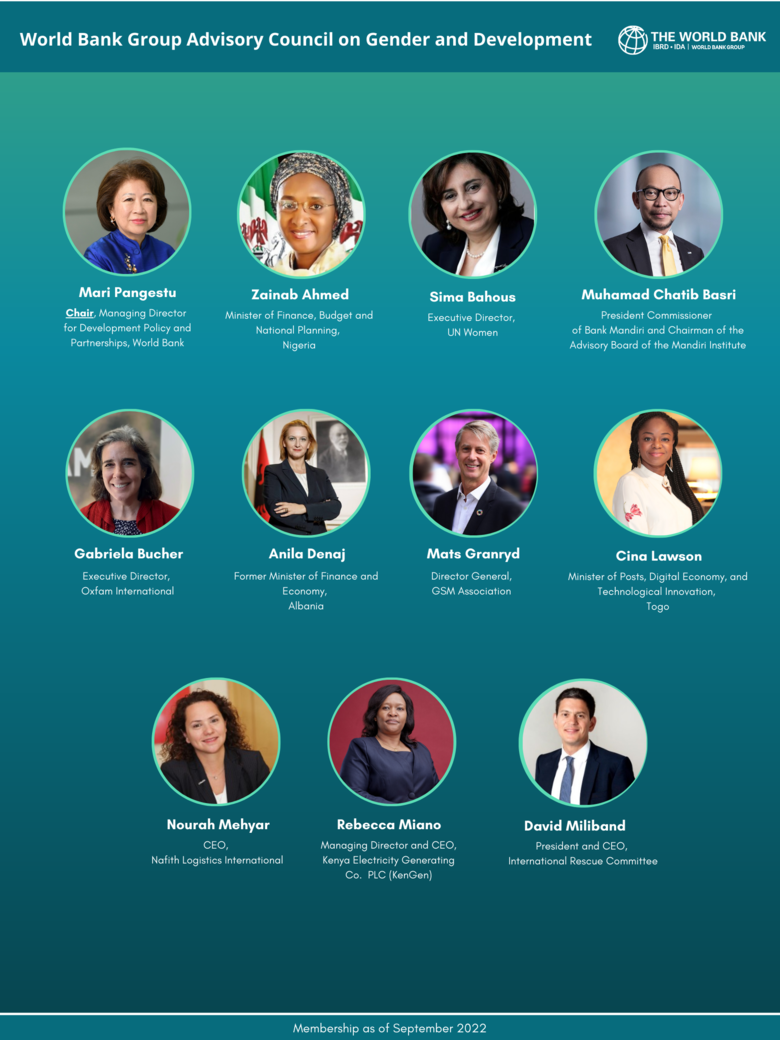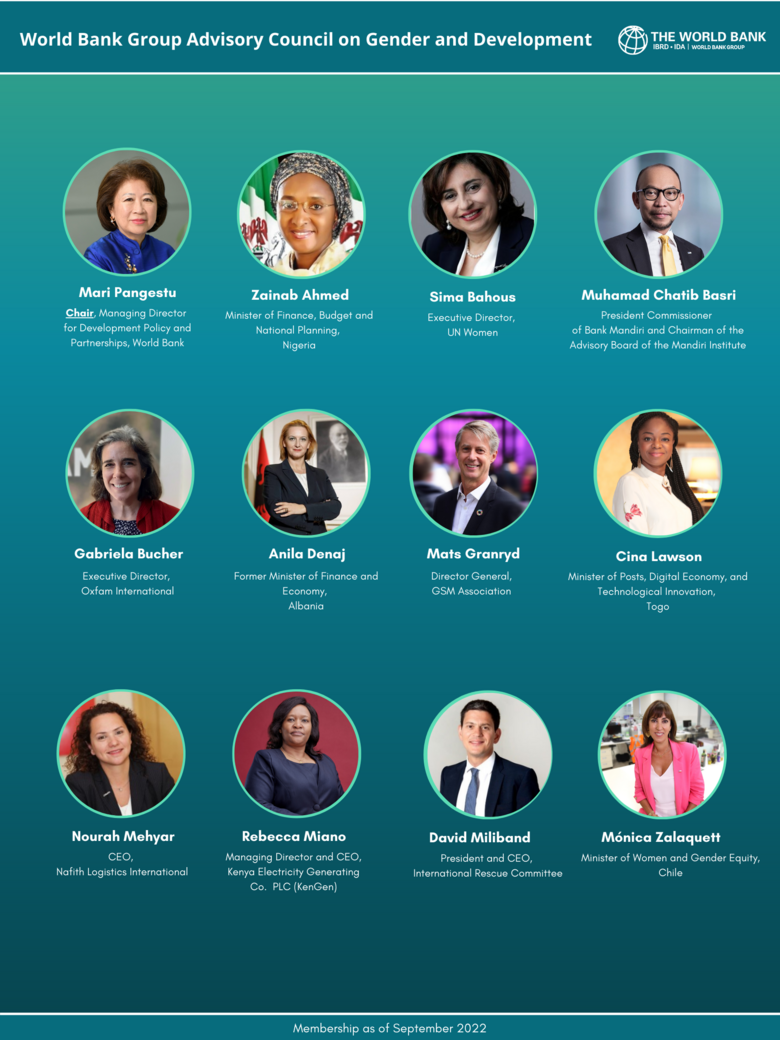The World Bank Group's Advisory Council on Gender and Development is the main external consultative body helping the World Bank Group promote gender equality, a prerequisite to our goal of ending extreme poverty and promoting shared prosperity. The Council meets twice a year to consider progress on, and constraints to, gender equality globally, and to provide feedback and advice on the World Bank’s work in this area. Members also collaborate on projects that promote gender and development, and contribute to efforts to raise awareness of gender-related issues and the benefits to societies and economies of improving opportunities for women and girls.
Since its establishment in 2011, the Council has, through its advice and guidance, helped to strengthen the WBG’s work to close gaps between men and women, and to implement recommendations in the 2012 World Development Report. In December 2015 the World Bank Group adopted a new gender strategy as a roadmap to help increase its contribution toward key results: closing first-generation gaps in education and health; getting to more, better, and inclusive jobs; closing gender gaps in ownership/control over key assets like land and finance; and enhancing women’s voice and agency, especially by preventing and responding to gender-based violence. The World Bank Group looks to the Council for advice in implementing this strategy in the face of global and national challenges, but also in helping identify entry points and opportunities.
The Council is composed of senior government representatives from World Bank client and donor countries, leaders from the private sector and civil society institutions working on economic development and gender equality, and distinguished experts in the fields of economics and gender and development, who have been invited to serve 2-year terms; renewable at the discretion of the Council Chair.
Membership of the Advisory Council on Gender and Development (as of September 2022)


